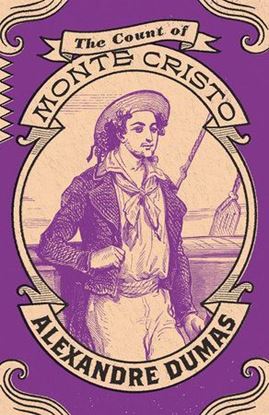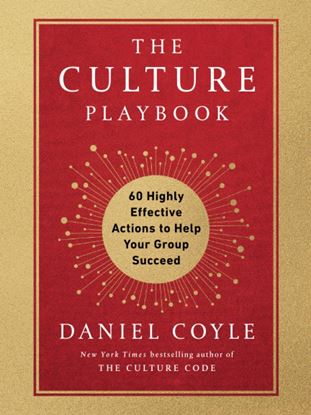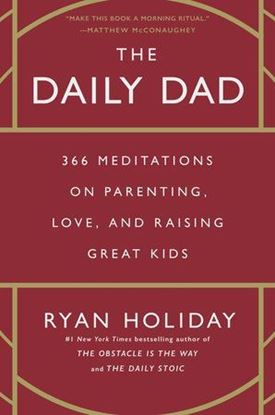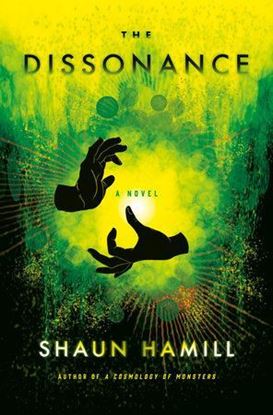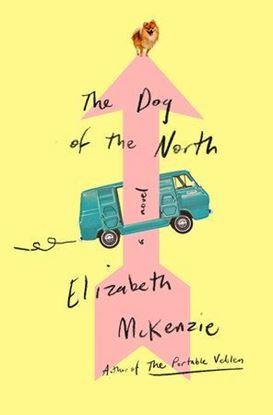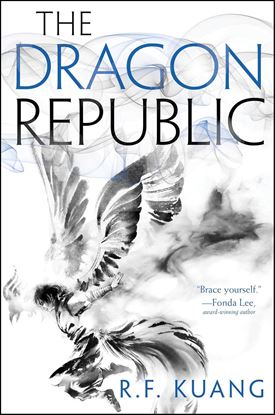

THE COUNT OF MONTE CRISTO
On the eve of his wedding, a young sailor named Edmond Dantès is wrongly accused of treason and imprisoned for life in the Château d’If, a reputedly impregnable island fortress. After a daring escape, Dantès unearths a treasure revealed to him by another prisoner and devotes the rest of his life to tracking down and punishing the enemies who wronged him, in disguise as the mysterious Count of Monte Cristo. Set against the dramatic upheavals of the years after Napoleon, Alexandre Dumas’s epic tale of betrayal and revenge is one of the most thrilling and enduringly popular adventure novels ever written.
1,200
THE COUPLE NEXT DOOR (MM)
AN INSTANT NEW YORK TIMES BESTSELLER Shari Lapena's new thriller, AN UNWANTED GUEST, is available now! "The twists come as fast [as] you can turn the pages." --People "Provocative and shocking." --Lisa Gardner, New York Times bestselling author of Find Her "I read this novel at one sitting, absolutely riveted by the storyline. The suspense was beautifully rendered and unrelenting!" --Sue Grafton, New York Times bestselling author of X It all started at a dinner party. . . A domestic suspense debut about a young couple and their apparently friendly neighbors--a twisty, rollercoaster ride of lies, betrayal, and the secrets between husbands and wives. . . Anne and Marco Conti seem to have it all--a loving relationship, a wonderful home, and their beautiful baby, Cora. But one night, when they are at a dinner party next door, a terrible crime is committed. Suspicion immediately lands on the parents. But the truth is a much more complicated story. Inside the curtained house, an unsettling account of what actually happened unfolds. Detective Rasbach knows that the panicked couple is hiding something. Both Anne and Marco soon discover that the other is keeping secrets, secrets they've kept for years. What follows is the nerve-racking unraveling of a family--a chilling tale of deception, duplicity, and unfaithfulness that will keep you breathless until the final shocking twist.
650
THE CULTURE PLAYBOOK
As an entrepreneur and founder of an investment bank led by women, | found The Culture Playbook to be an invaluable asset, providing tools and techniques as 1 work to unleash my team's full power and potential in an ever-evolving workplace. Daniel Coyle has given us all a game plan for success.”
950
THE DAILY DAD
“Life is short. Do not forget about the most important things in our life, living for other people and doing good for them.”—Marcus Aurelius
Becoming a parent is more than just a biological process – it’s a lifelong commitment to sacrifice, service, and most importantly, love. It’s a challenge to get up every day and put your kids first. You will experience moments of heroic compassion and humiliating failure, sometimes within the same day.
But you don’t have to do it alone. From Ryan Holiday, #1 New York Times bestselling author of the smash hit The Daily Stoic, The Daily Dad provides 366 timeless meditations on parenting in a few manageable paragraphs a day – useful for even the most sleep deprived new parent.
1,300
THE DISSONANCE
“You can never go home again,” the saying goes—but Hal, Athena, and Erin have to. In high school, the three were students of the eccentric Professor Marsh, trained in a secret system of magic known as the Dissonance, which is built around harnessing negative emotions: alienation, anger, pain. Then, twenty years ago, something happened that shattered their coven, scattering them across the country, stuck in mundane lives, alone.
But now, terrifying signs and portents (not to mention a pointed Facebook invite) have summoned them back to Clegg, Texas. There, their paths will collide with that of Owen, a closeted teenager from Alabama whose aborted cemetery seance with his crush summoned something far worse: a murderous entity whose desperate, driving purpose includes kidnapping Owen to serve as its Renfield. As Owen tries to outwit his new master, and Hal, Athena, and Erin reckon with how the choices they made as teens might connect to the apocalyptic event unfurling over the Lone Star State, shocking alliances form, old and new romances brew, and three unsuccessful adults and one frightened teen are all that stand between reality and oblivion.
From one of the boldest, most brilliant voices in modern fantastical horror, The Dissonance is a thrilling and beautifully written story of magic and monsters, forgiveness and friendship.
850
THE DOG OF THE NORTH
Penny Rush has problems. Her marriage is over; she’s quit her job. Her mother and stepfather went missing in the Australian outback five years ago; her mentally unbalanced father provokes her; her grandmother Dr. Pincer keeps experiments in the refrigerator and something worse in the woodshed. But Penny is a virtuoso at what’s possible when all else fails.
750
THE DRAGON REPUBLIC (2) (HC)
The war is over.
The war has just begun.
Three times throughout its history, Nikan has fought for its survival in the bloody Poppy Wars. Though the third battle has just ended, shaman and warrior Rin cannot forget the atrocity she committed to save her people. Now she is on the run from her guilt, the opium addiction that holds her like a vice, and the murderous commands of the fiery Phoenix—the vengeful god who has blessed Rin with her fearsome power.
Though she does not want to live, she refuses to die until she avenges the traitorous Empress who betrayed Rin’s homeland to its enemies. Her only hope is to join forces with the powerful Dragon Warlord, who plots to conquer Nikan, unseat the Empress, and create a new republic.
But neither the Empress nor the Dragon Warlord are what they seem. The more Rin witnesses, the more she fears her love for Nikan will force her to use the Phoenix’s deadly power once more.
Because there is nothing Rin won’t sacrifice to save her country . . . and exact her vengeance.
1,995
THE DRAGON REPUBLIC (2) (PB)
The war is over.
The war has just begun.
Three times throughout its history, Nikan has fought for its survival in the bloody Poppy Wars. Though the third battle has just ended, shaman and warrior Rin cannot forget the atrocity she committed to save her people. Now she is on the run from her guilt, the opium addiction that holds her like a vice, and the murderous commands of the fiery Phoenix—the vengeful god who has blessed Rin with her fearsome power.
Though she does not want to live, she refuses to die until she avenges the traitorous Empress who betrayed Rin’s homeland to its enemies. Her only hope is to join forces with the powerful Dragon Warlord, who plots to conquer Nikan, unseat the Empress, and create a new republic.
But neither the Empress nor the Dragon Warlord are what they seem. The more Rin witnesses, the more she fears her love for Nikan will force her to use the Phoenix’s deadly power once more.
Because there is nothing Rin won’t sacrifice to save her country . . . and exact her vengeance.
1,450
THE DRAGON REPUBLIC DELUXE COLLECTOR'S
The war is over.
The war has just begun.
Three times throughout its history, Nikan has fought for its survival in the bloody Poppy Wars. Though the third battle has ended, the war still rages for Rin. Haunted by the atrocity she committed to save her people, the shaman and warrior is on the run from her guilt, the opium addiction that holds her like a vise, and the murderous commands of the fiery Phoenix—the vengeful god who has blessed Rin with fearsome power.
While the young warrior welcomes death, she must remain alive until she avenges the traitorous Empress who betrayed her homeland. Rin’s only hope is to join forces with the enemy of her enemy—the powerful Dragon Warlord, who plots to destroy the Empress.
2,900


